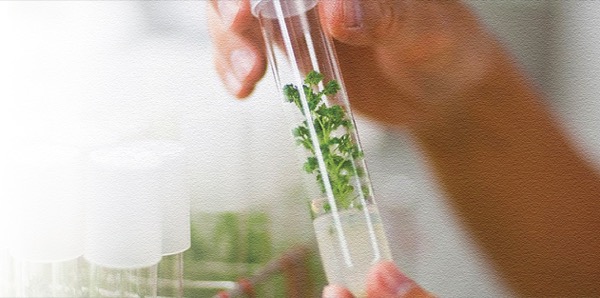A hardy and prolific plant known as sweet wormwood, or Artemisia annua, contains a potent ingredient that could become a new medicinal weapon in the battle to stem the COVID-19 pandemic.
Or it could be just one more promising treatment that showed strong antiviral activity in the laboratory but failed in human trials against an implacable foe.
That question is what investigators at the University of Kentucky (UKY) are determined to answer. They are about to launch two new clinical trial arms to test whether an extract from the dried leaves of Artemisia brewed in tea or coffee, or the tablet form of the antimalarial drug artesunate—also derived from sweet wormwood—are effective in newly diagnosed COVID-19 patients with cancer or other comorbid conditions that put them at high risk for severe disease.
The two trial arms will be integrated into the larger COVID-19 research program begun in early May by the UKY’s Markey Cancer Center, College of Medicine and College of Pharmacy, according to Jill Kolesar, PharmD, co-leader of Markey’s Drug Development Program. A time line for the two trials is hard to predict: “It all depends on how much COVID-19 infection we have in Kentucky,” Dr. Kolesar said.
If Artemisia leaves or artesunate proves effective, ramping up production would not be difficult, she noted. The plant has long been available as an over-the-counter folk remedy for fever, inflammation and malaria. The injectable and oral formulations of artesunate, although not approved in the United States, have been used worldwide for years to treat malaria.
Dr. Kolesar said an extract from the sweet wormwood plant is also under investigation for cancer. “It’s in the regulatory approval process.”
C. Michael White, PharmD, the department head and a professor at the University of Connecticut School of Pharmacy, in Storrs, said he applauded “all researchers looking for new candidate treatments against SARS-CoV-2. We desperately need drugs that can prevent COVID-19 infection or make the illness less severe.”
Dr. White noted the availability of only two therapies—dexamethasone, “which modestly reduces mortality in the sickest patients, and remdesivir, which modestly speeds recovery in the moderately ill. We have nothing for COVID-19 prophylaxis and nothing to stop newly infected patients from needing hospitalization.” He added: “As our group found in our Annals of Internal Medicine review [doi.org/ 10.7326/ M20-2496] and in results of trials stopped prematurely, other antimalarial drugs [hydroxychloroquine and chloroquine] with in vitro efficacy against SARS-CoV-2 have had lackluster effects in prevention and provide no benefits in treating COVID-19.”
Dr. White pointed out that the in vitro environment “has many substantial differences from the human environment. The three-dimensional structure of human tissues, the impact of blood flow, confounders from other endogenous and ingested exogenous substances in the body, and cell lines that have key dissimilarities from actual human tissues can all explain why in vitro results may not ultimately drive human effects,” he noted, citing a paper he co-authored in The Journal of Clinical Pharmacology (doi.org/ 10.1002/ jcph.1569).
“So it warrants human study,” Dr. White said, “but we should be cautious about promoting its benefits.”


